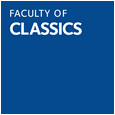Applications for Classical subjects are usually very strong, and most candidates are invited to interview. All applications are carefully and sympathetically considered, but the grounds on which a decision may be made not to invite a candidate to interview include:
- poor results in GCSE and/or equivalent examinations,
- poor results predicted for A Level and/or other impending examinations,
- poor results at A Level and/or equivalent examinations (if an application is made after A-Level or equivalent examinations),
- a negative school report,
- poor quality written work,
- insufficient indication of interest in the academic study of the subject in the candidate's application,
- poor results in written tests (other than the Language Aptitude Test) sat in the course of the candidate's application,
- failure to submit the required written work, or to sit the required written tests.
It should also be noted that the standard offer made to candidates is AAA at A Level: if a candidate is predicted, or has been awarded, grades lower than AAA, that will under normal circumstances constitute grounds for not inviting a candidate to interview in itself. Post-qualification candidates who have not achieved AAA (or equivalent in the IB or other qualifications) within two years will not normally be invited to interview unless there are strong mitigating circumstances. The college of preference (or allocated college in the case of open applicants) will consult other colleges and will only take the decision not to interview an applicant if all colleges agree.
In some cases a college other than the college of preference (or allocated college) may decide to invite the candidate to interview.



